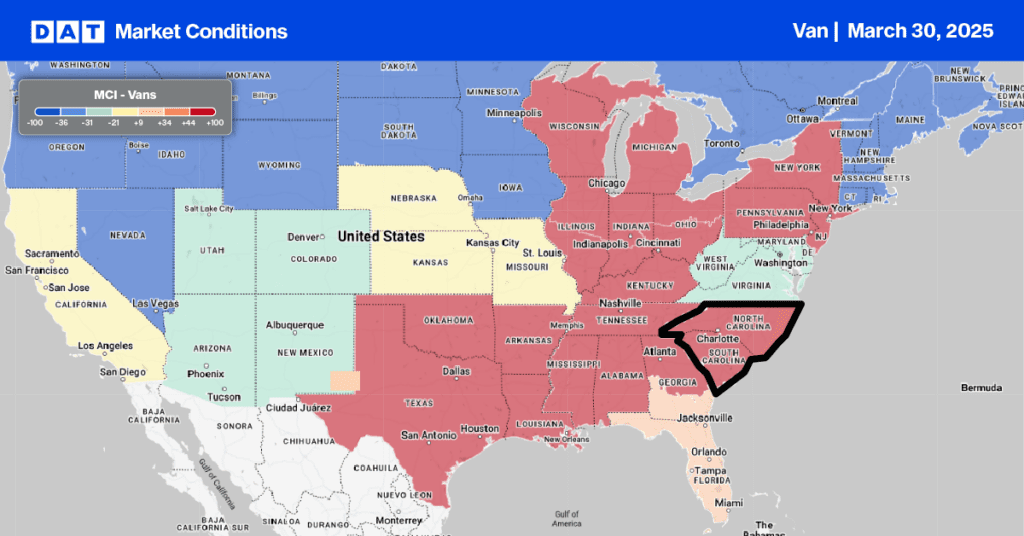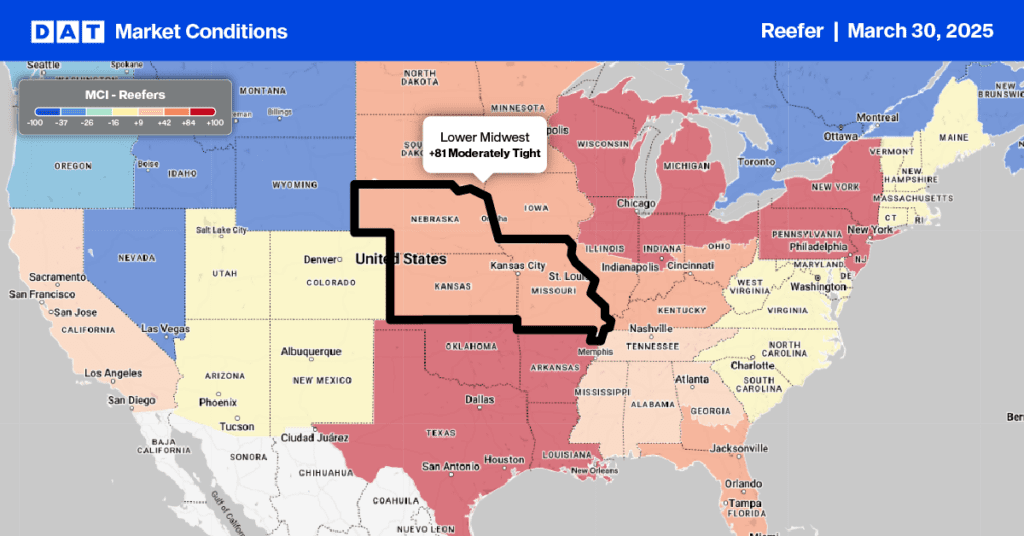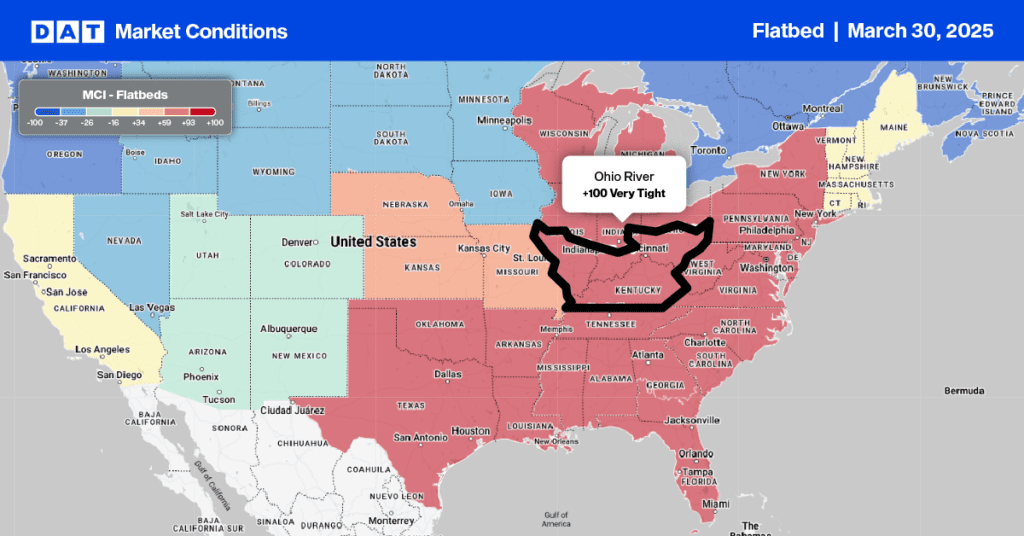On a recent DAT Freight & Analytics show, Matthew Leffler, The Armchair Attorney, discussed the top three legal issues facing our industry today. Here’s part of the interview with Ken Adamo, Chief of Analytics, and Dean Croke, Principal Market Analyst.
Please note that this content is not a substitute for a legal opinion. Please seek an attorney if you need legal advice regarding the subjects covered in this interview.
Ken Adamo: So, let’s start with employment classification because that’s kind of the big kerfuffle around AB5 in California back in June. Can you just set the stage for the critical implications of what that means across the industry?
Matthew Leffler: AB5 is this growing trend around what it is to be an employee and what it means to be a contractor. The greatest innovation in transportation in the last 40 or 50 years was the advent of independent contractors. This entity can perform work at your direction, where you don’t have to pay unemployment; you have to pay medical insurance or any time off that they might have no wage and hour compliance. And this is how freight moves so efficiently. However, a state like California has come in and said we’re going to change some ways we identify independent contractors. That’s what AB5 is all about, the presumption that a driver classified as an independent contractor is actually an employee. It’s up to the hiring entity to prove that they are, in fact, an employee or independent contractor and not an employee.
Ken Adamo: Let’s use FedEx as an example. All FedEx Express couriers are FedEx employees, but FedEx Ground is an independent contractor operation. That’s the same thing with Amazon, where companies outsource risk to somebody else – correct?
Matthew Leffler: FedEx Ground and Amazon are great examples of independent contractors. Like all the good companies someone’s delivering, you’re DoorDash, GrubHub, or UberEATS. These companies use independent contractors or sole proprietors to offset their cost structure. Having independent contractors deal with all of this, and because our business is so dependent on independent contractors, has changed the way many companies view the risk; because we mentioned California, if you misclassify somebody, the liabilities are substantially non-insurable.
So it means all your back wages will be paid, your back PTO with paid, and penalties will be assessed. It’s a very, very dangerous place if you’re misclassifying your employees, and it’s like anything, it’s a test, a legal test of determining whether somebody is a contractor or they’re an employee.
Ken Adamo: That’s the ABC Test – can you explain this a little further?
Matthew Leffler: The ABC test looks at three factors to your points. The A part is the level of control the hiring entity has over that contractor. Is that hiring entity telling you, here’s where you have to go every day; here’s the load you’re going to take? You don’t get to refuse them. Here are the companies you get to work with. Here’s an example of that in real time.
There was a Seventh Circuit case with a large truckload carrier who was involved, and they had told their independent contractor you can’t haul freight for our competitor. And when they did that, the courts said that sounds an awful lot like you’re controlling what they do in their business, and they ended up losing the case, which is why these things are so dangerous.
The other piece of this ABC test is if you have your own business doing part of what you’re having the contractors do. So if you’re a brokerage company with asset-based carriers and use independent contractors in California, you might have some challenges. If you’re doing the same work as the employees would be doing, you could find yourself on the other side of having misclassified somebody.
These dangers are there, and that’s why so many companies are focused on AB5, which is just a codification of the existing California law. So this has been the law for many, many years in California.
Dean Croke: Have you seen any enforcement activity against carriers and any class actions by carriers where the hiring entity misclassified them?
Matthew Leffler: It’s a trickle, but it’s not the government that comes in and does the enforcement. In reality, one of the parties, typically the one doing the work, says I’m being misclassified and then individually sues that organization with the California Labor Law. So we are going to see a lot start to trickle in over time. And companies have been making exciting moves to kind of de-risk themselves. Companies are already de-risking by saying to independent contractors, “I’ll bring you on as an employee, and I’ll pay you for the truck that I’m going to lease from you.” So you now have these two revenue sources for the independent contractor.
Ken Adamo: Where would you guess, if anywhere, that this legislation pops up next?
Matthew Leffler: That’s a great question. So the ABC test is, again, a presumption that you’re an employee, not that you are presumed to be whatever the hiring entity says you are. There are over 20 states that use the ABC test today, so that test will continue to grab hold in the markets all across the country. The other test we saw the FTC put out in one of their recent publications is this idea around the economic realities test. And that economic reality is another version of the unemployment classification, which is far more favorable to the industry.
So I believe we’ll see, on the federal level, potentially more economic reality stuff. And then, on the state level, we may see more ABC tests that will occur in the more liberal states.
Ken Adamo: All right, next, moving on to everyone’s favorite topic, nuclear verdicts.
Matthew Leffler: So here’s the deal, folks. I’m passionate about this topic. No law says that’s a nuclear verdict. That’s like Hiroshima or Nagasaki. It’s nothing like that. What it typically refers to is a verdict over $10 million. Now, what is the value of human life? This is the question lawyers get asked when we litigate this question. If you look at the Department of Transportation, they have a statistical valuation of human life. That is $11.2 million. That’s the number the DoD associates with the value of human life anytime someone dies. I’m sorry; it is a nuclear verdict because it will be over 10 million.
What ends up happening, and this while I’ll stop in a moment, is that this phrase becomes used to say, This is wrong. This injured person made too much money; they should not have been paid this much, and they moved it to the tort reform conversation. So nuclear verts are not a legal term of art. It was invented to an extent by the industry, and it’s used to make you think certain things about the people who sue and the injured.
Ken Adamo: A lot of intermediaries are struggling with carrier selection. They want the government to come out and tell them if this is a fit carrier to handle the shipment. Do you see any pathway toward getting clear on what is a fit carrier?
Matthew Leffler: If we could enforce the existing regulations and just give an example, we would have an International Road Check every year. We also have Brake Safety Week, where we do inspections nationwide. And we see numbers between 10 and 20% of vehicles on the road fail for maintenance reasons. So we want to ensure carriers are fit and properly maintain their equipment.
So these nuclear verbs or proxies to what we don’t want to be on the hook for. Brokers also want to see high carrier fitness levels as they don’t want to be tagged in the process. They don’t want to get sued.
Ken Adamo: So we’ve covered two of our three topics – take us through broker liability and non-competes.
Matthew Leffler: I’m very passionate about this topic. Over 30 million Americans have signed a noncompetition agreement. 10% of them will negotiate, and 90% will not. Thirty million Americans are 18% of the workforce; most people do not get a chance to review them. Most people don’t get a chance to negotiate them, sign them, and then when they leave the job, they get sued.
Now, the same can be said to an extent with nonsolicitation. But the trend we’ve seen in the business is not only state and federal governmental authorities saying we want to curb these things because they are desperately unfair. 30% of people who sign these are making minimum wage or under $13/hour in some cases. So it’s not made for every executive and people starting businesses. It is a first-year carrier sales rep starting a noncompetition agreement and can’t get a job afterward.
Suppose we don’t talk about them and teach people how to deal with noncompetition agreements, negotiate them, and ask for more money for them. In that case, we are doing a disservice to our supply chain because we want the best people to move freight safely and successfully.
We expect businesses to make good decisions and be ethical actors in our supply chain and other industries. Still, legislators will come in and correct it when they’re not willing to do that. And that’s the trend that we’re seeing – states are stepping up and saying we’re going to stop these types of agreements because they’re not good for anybody.
The full interview can be found here.


